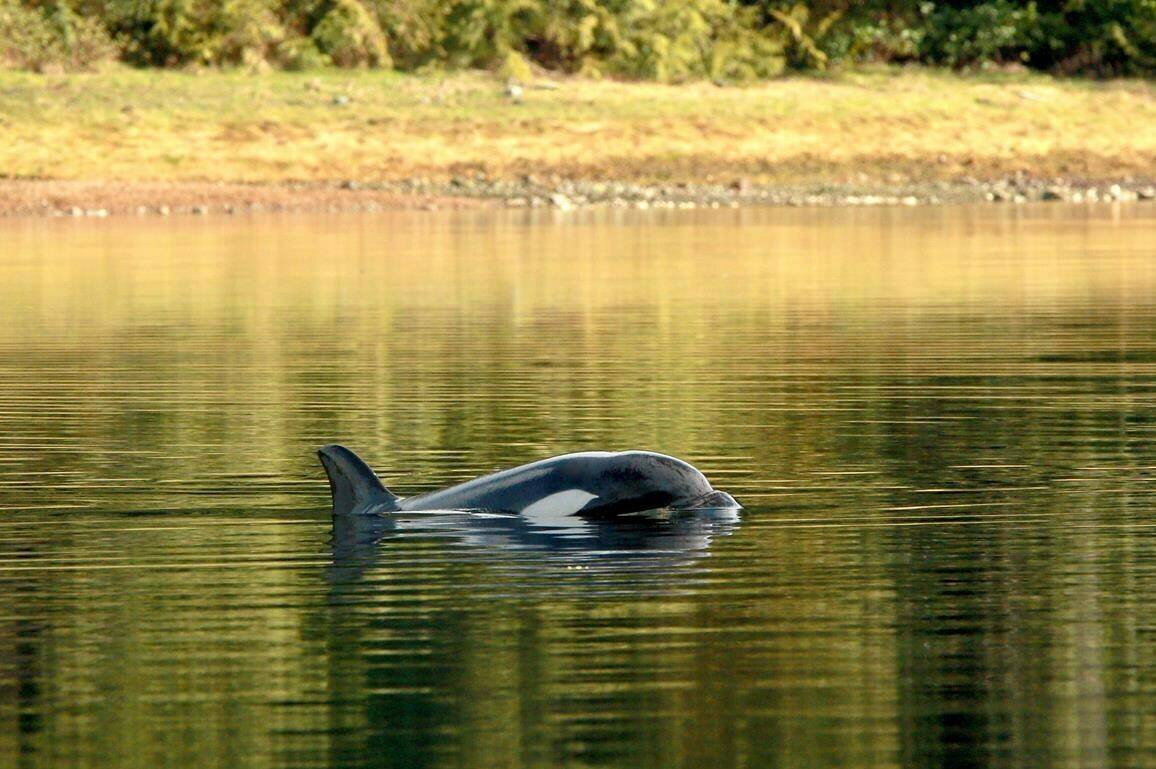A Vancouver Island First Nation that has adopted a young killer whale as its newest family member says concern rises about its ordeal with each day that passes, but strong hope for a rescue remains.
The Ehattesaht First Nation says in a statement people have been listening to to the female orca calf’s calls on a hydrophone, describing the vocalizations as so filled with longing they “make you almost weep.”
The First Nation named the two-year-old orca kwiisahi?is, or Brave Little Hunter, after it ventured into a tidal lagoon off northwest Vancouver Island with its mother last month, but tragedy resulted when the pregnant mother killer whale became stranded on a rocky beach at low tide and died.
The First Nation says the orca calf appears to be holding up quite well, showing signs of energy after being observed breaching out of the lagoon surface for the first time on the weekend and slapping its tail on the water.
The First Nation says it is receiving dozens of calls from people offering best wishes, asking to volunteer and providing advice in the quest to rescue the young orca, which could occur this week.
The federal Fisheries Department, which has whale experts working with the First Nation on a plan to rescue the young orca, says in a statement planning and logistics are continuing and contingencies are being considered for different rescue approaches and options.
“Over the past week we have marshalled more equipment, expanded the team and continued with preparations,” says the First Nation. “We were onsite exploring more options and build more contingency plans. We will be testing the equipment and meeting some more.”
The British Columbia First Nation at the centre of a complex rescue attempt says it is facing hard decisions. It is relying on its traditional knowledge about whales and its territorial waters, along with modern tools, to mount the rescue.
Ehattesaht Chief Simon John previously said an attempt to rescue the female orca calf, estimated to be about two years old and already more than two weeks in the lagoon off northwest Vancouver Island, could occur this week.
First Nation members, federal Fisheries Department marine mammal experts, whale scientists and boat and machine operators spent much of Tuesday in meetings preparing for a rescue attempt.
The Fisheries Department says in a statement that rescue plans, approaches, and options were being discussed and reviewed, but the timing of an attempt to get the orca calf out of the lagoon to a possible open ocean reunion with its extended family members has not been set.
READ ALSO: Complicated orphan orca rescue operation could begin as soon as next week
READ ALSO: Surrey rescuer says ‘very short window’ to return orphan whale to its family

